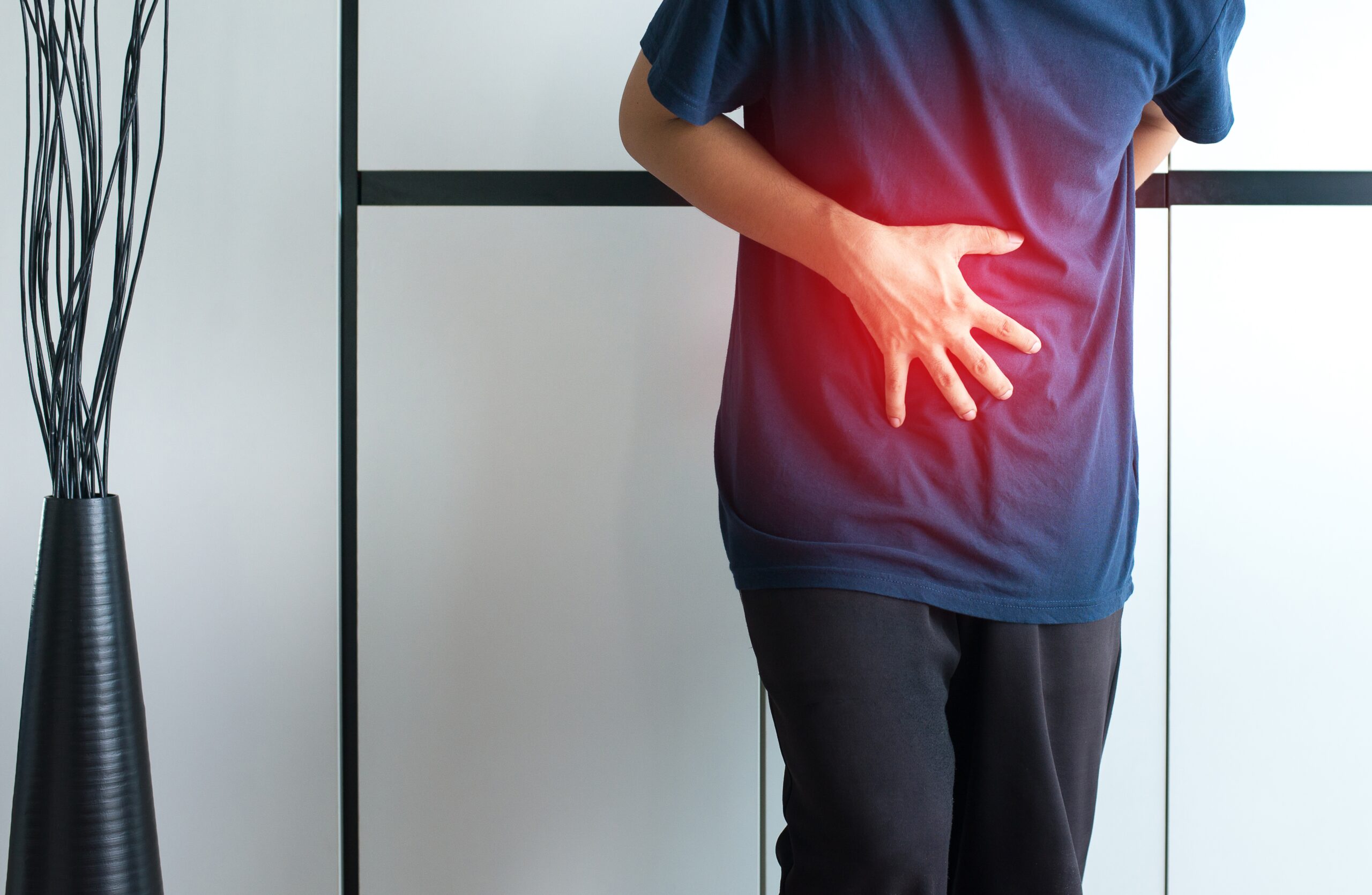Crohn’s disease is genetic chronic inflammatory disorder of the digestive system that affects any part of the digestive tract, with the ileum and proximal colon being affected the most. Crohn’s disease causes gastrointestinal symptoms ranging from diarrhea, blood in the stool, abdominal pain, loss of appetite, weight loss, and malnutrition. Liver disorder can also occur.
In some cases, parts of the digestive tract need removal. This client has had a small bowel resection, and it important to provide nutritional therapy to prevent malnutrition.
The small intestine is the site of absorption of carbohydrates, fats, proteins, calcium, magnesium, trace elements and vitamins. It is also in the small intestine that bile salts are recycled.

Removal of the ileum reduces the absorptive surface area of the small intestine. Bile acids cannot be absorbed. This causes fat maldigestion and malabsorption of fat-soluble vitamins. Bile acids also spill in the colon causing watery diarrhea. The watery diarrhea is usually present in the post-operative period, and oftentimes medications are prescribed to manage the symptoms. The watery diarrhea causes dehydration; therefore, it is important to support electrolyte and fluid balance.
If this patient is not a renal patient, I recommend liberal use of unrefined salt. I cannot stress enough the importance of hydration: this client should drink filtered or spring water, away from meals, as well as nourishing bone broths. He should also reduce caffeine, soda, and alcohol to a minimum, as these beverages are dehydrating as well as irritating to the digestive tract. Should this client also be a renal patient, I would work collaboratively with his renal nurse specialist to find the right sodium and water requirements.
The Importance Of Vitamin B 12 When the Ileum Is Removed
Vitamin B 12 is absorbed in the lower ileum; it is necessary for red blood cell formation, DNA synthesis, and nerve function. Removal of the ileum causes vitamin B12 deficiencies; therefore, it is necessary for this client to start supplementing vitamin B12 immediately. I would recommend vitamin B12 injections, which are more bioavailable as they bypass the digestive tract. It is important to monitor vitamin B 12 levels yearly and adjust supplement dosage accordingly.
Altered anatomy also leads to fat maldigestion and deficiencies of fat-soluble vitamins. Vitamin D is necessary for healthy bones, calcium metabolism and immune system function, and deficiency can cause bone disease and osteoporosis. Supplementation of vitamin D as well as sun therapy are very important. Vitamin K is important for blood clotting and bone structure; deficiency can cause bleeding and bruising. Vitamin K deficiency is rare because the flora of the large intestine manufactures most of the vitamin K our bodies need. Vitamin A deficiency can be present. This fat-soluble vitamin is important for eyesight as well as tissue growth and healing, and deficiencies can cause night blindness and infections. Vitamin A is stored exclusively in the liver, and serum levels may not be a good indicator of body reserves. Ancient Egyptians treated vitamin A deficiency with liver.
What Happens During The Post-Operative Period?
In the immediate post-operative period a low-residue diet is indicated to control diarrhea. In some cases, enteral nutrition is necessary.2
I recommend for this client a nutrient-dense diet, high in protein diet but moderate in fats. Carbohydrates should be easy to digest and void of fibers (no whole grains for now, focus on potatoes without the skin, bananas, white rice). The diet will be low in oxalates and low-residue, as fiber, and especially insoluble fiber, is hard to digest in the post-operative period. Small amounts of well cooked vegetables can be added if tolerated (starting with ½ cup). Raw vegetables need to be avoided at this time. I recommend excluding vegetables that cause intestinal gas and discomfort: onions and garlic, vegetables of the brassica family, and legumes.3
References:
1 Costantini A, Pala MI. Thiamine and fatigue in inflammatory bowel diseases: an open-label pilot study. Journal of Alternative and Complementary Medicine (New York, NY). 2013 Aug;19(8):704–8.
2 Boelens PG, Heesakkers FFBM, Luyer MDP, van Barneveld KWY, de Hingh IHJT, Nieuwenhuijzen GAP, et al. Reduction of Postoperative Ileus by Early Enteral Nutrition in Patients Undergoing Major Rectal Surgery: Prospective, Randomized, Controlled Trial. Annals of Surgery. 2014 Apr;259(4):649–655.
3 Nutrition Guidelines for People With Short Bowel Syndrome | Memorial Sloan Kettering Cancer Center [Internet]. [cited 2020 Oct 10]. Available from: https://www.mskcc.org/cancer-care/patient-education/nutrition-guidelines-patients-short-bowel-syndrome

